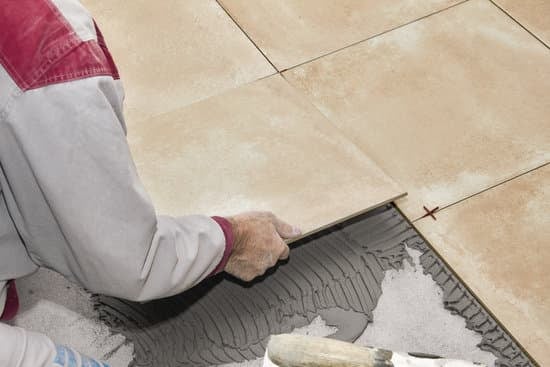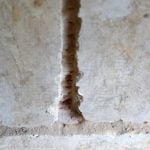Striving to improve your home through renovations or remodeling often requires financial assistance. One key aspect of securing a home improvement loan is understanding the interest rates associated with these loans. In this article, we will explore how to calculate home improvement loan interest, as well as important factors and tips to consider when navigating through this financial process.
When considering a home improvement loan, it is crucial to understand the various types of loans available, as well as the factors that can affect the interest rates associated with them. Whether you are leaning towards a personal loan, home equity loan, or a specific government-backed loan for renovations, each option comes with its own interest rate structure and requirements.
Calculating the interest on a home improvement loan can be a daunting task for many homeowners. However, learning how to calculate simple interest and utilizing an amortization schedule are effective tools in understanding the financial implications of such loans.
Additionally, negotiating lower interest rates and maintaining a good credit score also play significant roles in obtaining favorable terms for your renovation financing needs. Understanding all these aspects will provide you with valuable insights into managing and maximizing your resources for your home improvement project.
Types of Home Improvement Loans
When considering a home improvement project, it’s important to explore the various types of loans available for financing. Different types of home improvement loans offer different interest rates and repayment terms. Here are some common types of home improvement loans to consider:
- Personal Loans: These unsecured loans are typically based on your credit score and income. They offer fixed interest rates and can be used for various purposes, including home improvement projects.
- Home Equity Loans: Also known as second mortgages, these loans allow homeowners to borrow against the equity in their homes. The interest rates are usually fixed, and the loan is paid back over a set period of time.
- Home Equity Lines of Credit (HELOC): Similar to a credit card, a HELOC allows you to borrow against the equity in your home as needed. The interest rates are usually variable, but you only pay interest on the amount you use.
- Cash-Out Refinance: This option involves refinancing your mortgage for more than you owe and taking the difference in cash. The interest rate is typically lower than that of a personal loan or credit card.
Each type of loan comes with its own advantages and disadvantages, so it’s crucial to consider the specific requirements of your home improvement project and your financial situation before deciding which type of loan is right for you. Additionally, comparing the interest rates and terms offered by different lenders will help you secure the best possible deal for your home improvement financing needs.
Factors That Affect Home Improvement Loan Interest Rates
When applying for a home improvement loan, it’s important to understand the factors that can affect the interest rates you are offered. Here are some key factors to consider when evaluating home improvement loan interest rates:
1. Credit score: Your credit score plays a significant role in determining the interest rate you will be offered on a home improvement loan. Lenders use your credit score to assess your creditworthiness and ability to repay the loan. The higher your credit score, the more favorable interest rates you may qualify for.
2. Loan amount: The amount of money you are borrowing for your home improvement project can also impact the interest rate you are offered. Generally, larger loan amounts may come with higher interest rates, while smaller loan amounts may qualify for lower interest rates.
3. Loan term: The length of the loan term can also impact the interest rate on a home improvement loan. Shorter loan terms typically come with lower interest rates, while longer loan terms may have higher interest rates.
Understanding these factors can help you better evaluate and compare different loans and lenders to find the best home improvement loan interest rates for your specific financial situation and project needs. By being aware of these influencing elements, borrowers can make informed decisions when it comes to securing financing for their home improvements.
How to Calculate Simple Interest for Home Improvement Loans
When it comes to home improvement loans, interest rates play a crucial role in determining the overall cost of the loan. The interest rate is the percentage of the principal amount that is charged for borrowing, and it can have a significant impact on your monthly payments and the total amount repaid over time.
Types of Home Improvement Loans
There are various types of home improvement loans available, including personal loans, home equity loans, and home equity lines of credit (HELOC). Each type of loan may have different interest rates and terms, so it’s essential to understand these differences before applying for a loan.
Factors That Affect Home Improvement Loan Interest Rates
Several factors can affect the interest rates offered on home improvement loans. These factors include your credit score, debt-to-income ratio, the amount of equity in your home, and the loan term. Lenders also consider economic conditions and market trends when determining interest rates.
| Factor | Effect on Interest Rates |
|---|---|
| Credit Score | A higher credit score generally leads to lower interest rates. |
| Loan Term | Shorter loan terms typically have lower interest rates compared to longer terms. |
| Market Trends | Economic conditions and market trends can cause fluctuations in interest rates. |
Using the Amortization Schedule for Home Improvement Loan Interest Calculations
When considering a home improvement loan, understanding how to calculate the interest is crucial in making informed financial decisions. One method to accurately determine the interest on your loan is by using an amortization schedule. This schedule provides a detailed breakdown of each payment made towards the principal amount and the interest over the life of the loan.
What Is an Amortization Schedule?
An amortization schedule is a table that shows the breakdown of each loan payment, illustrating how much goes towards paying off the principal and how much goes towards paying off the interest. This schedule allows borrowers to see a clear picture of their repayment obligations over time.
How to Use an Amortization Schedule for Interest Calculations
To calculate home improvement loan interest using an amortization schedule, you can simply look at the breakdown of each payment. In the initial stages of repayment, a larger portion of each payment goes towards paying off the interest. As time progresses, more of each payment will go towards paying down the principal amount.
The Benefits of Using an Amortization Schedule
Using an amortization schedule helps borrowers understand exactly how their payments are being applied to their loan and allows them to see how much they are spending on interest over time. It also provides transparency into the total cost of borrowing and can help borrowers make informed decisions about their loan terms and repayment options. By utilizing this tool, borrowers can gain a comprehensive understanding of their financial obligations and plan accordingly for future payments.
Tips for Negotiating Lower Interest Rates on Home Improvement Loans
When it comes to getting a home improvement loan, the interest rate plays a significant role in determining the overall cost of the loan. Here are some tips for negotiating lower interest rates on home improvement loans:
First, it’s crucial to shop around and compare offers from different lenders. Each lender may have its own criteria for determining interest rates, so by obtaining multiple quotes, you can identify the most favorable terms available to you.
Another effective strategy is to improve your credit score before applying for a home improvement loan. Lenders often offer lower interest rates to borrowers with higher credit scores, as they are perceived as lower risk. This can be achieved by making timely payments on existing debts and reducing credit card balances.
Additionally, consider securing the loan with collateral, such as home equity or other assets. Offering collateral reduces the lender’s risk, which may result in a lower interest rate being offered to you. However, it’s important to carefully consider the potential consequences of using collateral before proceeding with this option.
Importance of a Good Credit Score in Home Improvement Loan Interest Rates
A good credit score is crucial when it comes to obtaining favorable interest rates on home improvement loans. Lenders use credit scores as a measure of the borrower’s creditworthiness, and a higher score often translates to lower interest rates. This section will delve into the importance of a good credit score in securing favorable loan terms for home improvement projects.
Impact of Credit Score on Interest Rates
An individual’s credit score has a significant impact on the interest rates they are offered by lenders. Borrowers with an excellent credit score typically receive lower interest rates, while those with lower scores may face higher rates or even struggle to secure a loan at all. Lenders view individuals with higher credit scores as less risky and are therefore more willing to extend loans at more favorable terms.
Improving Credit Score for Better Loan Terms
If you currently have a lower credit score and are planning a home improvement project, there are steps you can take to improve your creditworthiness before applying for a loan. Paying bills on time, paying down existing debt, and avoiding opening new lines of credit can all contribute to raising your credit score.
By improving your financial habits and addressing any negative marks on your credit report, you can increase your chances of qualifying for a home improvement loan with lower interest rates.
Seeking Lenders That Consider Other Factors
While many lenders heavily weigh credit scores in their decision-making process, some may also consider other factors such as income stability and employment history. If you have a solid income and employment record but a less-than-perfect credit score, it may be worth seeking out lenders who take these additional factors into account when determining loan terms.
Researching different lenders and understanding their criteria can help you identify those that may offer more lenient terms based on factors beyond just your credit score.
Comparing Different Lenders for the Best Home Improvement Loan Interest Rates
In conclusion, when it comes to home improvement loans, it is crucial to carefully compare different lenders in order to secure the best interest rates. By understanding the various types of home improvement loans and the factors that affect interest rates, borrowers can make more informed decisions about which lender to choose. Utilizing tools such as amortization schedules can also help borrowers calculate and understand the total cost of their loan, including interest.
Furthermore, negotiating lower interest rates with potential lenders is an important strategy for obtaining a favorable home improvement loan. This can be achieved by showcasing a good credit score and demonstrating financial stability. A good credit score not only improves the likelihood of securing a lower interest rate but also reflects positively on a borrower’s overall financial responsibility.
Ultimately, by comparing different lenders and taking steps to improve one’s financial standing, individuals can find the most advantageous home improvement loan interest rates. This process requires thorough research and careful consideration, but it can lead to significant cost savings over time. As with any major financial decision, approaching home improvement loans with knowledge and strategy is essential for achieving the best possible outcome.

I’m thrilled to have you here as a part of the Remodeling Top community. This is where my journey as an architect and remodeling enthusiast intersects with your passion for transforming houses into dream homes.





